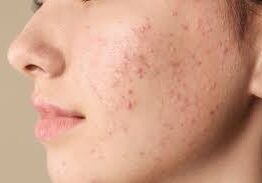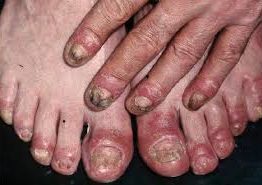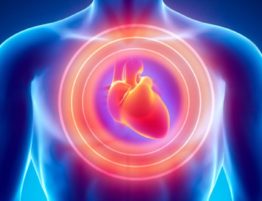Allergy in general terms means dislike or intolerance, but in Medical terms, it means a disorder in which the body becomes hypersensitive to a particular allergen or stimulus. Here when a person comes in contact with substances that they are allergic to will intern cause a chain of reaction in an allergic person, like itching, redness, swelling etc.
To understand the general reaction of the human body when the allergic person is exposed to the stimulus, there are certain terms that need to be clear:
ALLERGEN: An agent or substance which producesAllergy.
ANTIBODY: A substance produced by the body to fight disease in reaction to antigens.
ANTIGEN: Any substance which under favourable conditions can stimulate the production of antibodies. Disease caused by Allergy
1) Asthma
2) Hay Fever
3) Allergic Rhinitis
4) Urticaria (Hives)
5) Allergic Eczema
6) Allergic Contact Dermatitis
7) Parthenium(weed) Allergy
8) Allergy to Vegetables
9) Cosmetic Allergy
10) Metal Allergy
11) Clothing Allergy
12) Chemical Allergy
13) Food Allergy
14) Drug Allergy
15) Physical Allergy
16) Ocular Allergy
17) Climate Allergy
18) Environmental Allergy
19) Allergy due to Electro Magnetic Fields
20) Nervous Allergy
Signs And Symptoms:
Allergy depending on the affected part or area or organ, show different signs and symptoms altogether, and it also depends on the sensitivity of the patient, nutritional status, hereditary factors, emotional and mental status, environment and occupation. It generally presents with normal cold and cough, some skin reaction, fever, nausea, vomiting, diarrhoea, headaches, itching, rashes on the skin, acidity depending on person to person. In some patients, the allergic reaction leads to anaphylaxis and it is life threatening and requires immediate hospital admission.
Precautions:
If your troubles seem to be the probable cause of an allergy, your doctor will be able to assist you in several ways. However certain precautionsare required to be taken and they are as follows:
1) Avoid pollens, spores of fungi, also avoid keeping indoor plants
2) Avoid living or going to basements damp places, places where walls absorb moisture
3) Avoid collection of dust from carpets, mattress, pillows, curtains, rugs, books
4) Avoid taking contaminated food or food whichcauses allergy to food sensitive persons
5) Keep animals outside the house, avoid pets likebirds, cats dogs, turtles
6) Avoid cosmetics, metals, ornaments, fabrics, towhich you are allergic to.
7) Do not use hairsprays, perfumes, strong odours, DDT, crop sprays, insecticides, pesticides, paints and varnishes.
8) Avoid use of medicines like sulpha drugs, anti-inflammatory, anti- pyretic, getyourself tested for one
9) Keep away from smokes, pollution, industrial wastes, tie a scarf around nose and mouth if travelling.
10) Avoid living near sea shores or damp places.
HOMOEOPATHY ANDITS ROLE IN ALLERGIES
Homoeopathy being a holistic science, works not only on the pathology but also, on the physique and the mind of the person. It acts on the physical and mental level, boosting the body’s own defence system to cope with the exposure to allergens rather than suppressing the allergic symptoms.
Various remedies like medo., merc., syph. , thuja., tub., bac. , spong., kali-p., kali-bi, pulmo vulpis,.blatta., sulph., naja. etc is
( Caution: Do not self- medicate, take homoeopathic medicines under the supervision of a Homoeopathic Physician )
Share your feedback or queries on clinic@kalpclinic.in
Whatsapp on 9892188874
Kalp Clinic
Dr.Kinjal Shah
M.D. (HOM).








Write a comment: